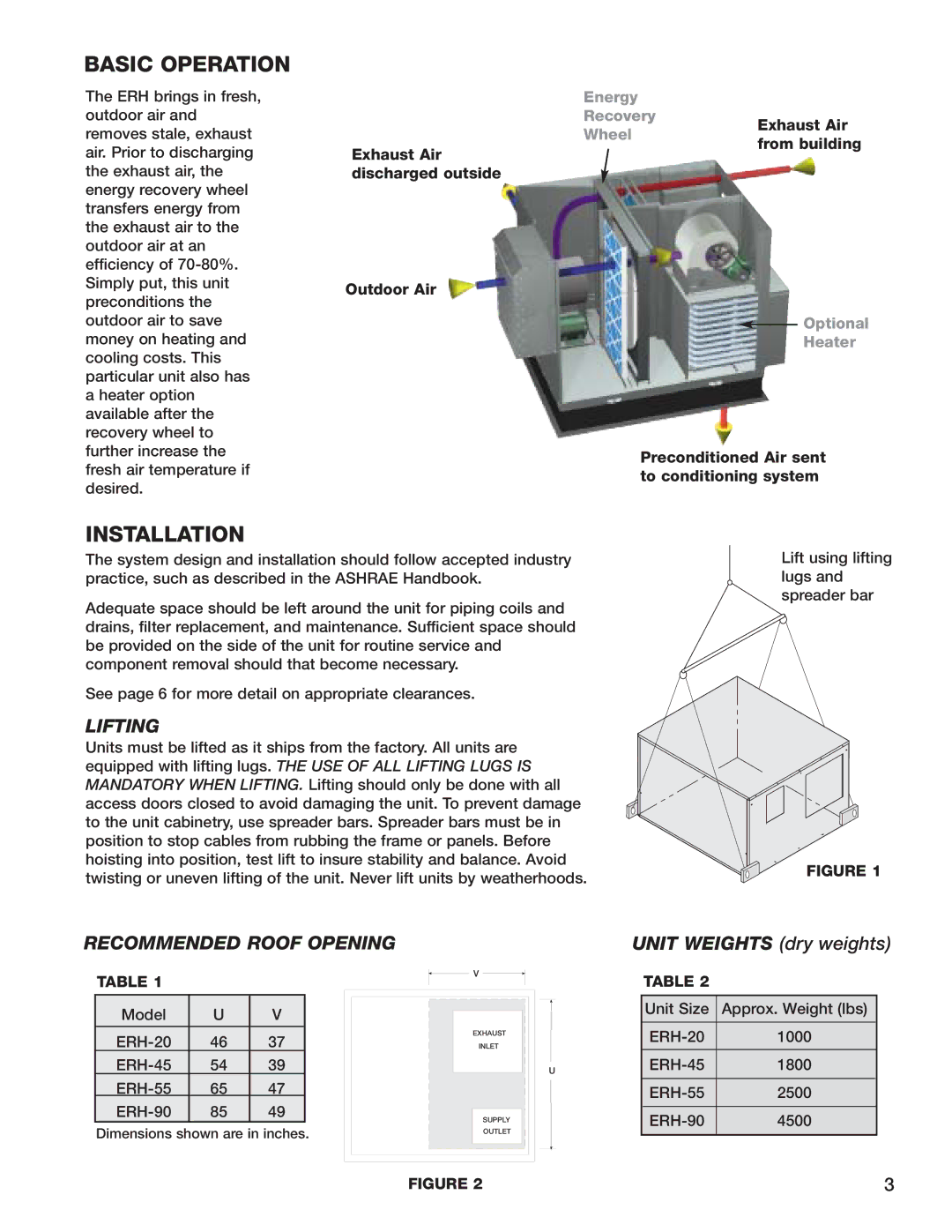
BASIC OPERATION
The ERH brings in fresh, outdoor air and
Energy Recovery
removes stale, exhaust
Wheel
Exhaust Air
air. Prior to discharging the exhaust air, the energy recovery wheel transfers energy from the exhaust air to the outdoor air at an efficiency of
Exhaust Air discharged outside
Outdoor Air
from building
outdoor air to save money on heating and cooling costs. This particular unit also has a heater option available after the recovery wheel to further increase the fresh air temperature if desired.
![]() Optional
Optional
Heater
Preconditioned Air sent to conditioning system
INSTALLATION
The system design and installation should follow accepted industry practice, such as described in the ASHRAE Handbook.
Adequate space should be left around the unit for piping coils and drains, filter replacement, and maintenance. Sufficient space should be provided on the side of the unit for routine service and component removal should that become necessary.
See page 6 for more detail on appropriate clearances.
LIFTING
Units must be lifted as it ships from the factory. All units are equipped with lifting lugs. THE USE OF ALL LIFTING LUGS IS MANDATORY WHEN LIFTING. Lifting should only be done with all access doors closed to avoid damaging the unit. To prevent damage to the unit cabinetry, use spreader bars. Spreader bars must be in position to stop cables from rubbing the frame or panels. Before hoisting into position, test lift to insure stability and balance. Avoid twisting or uneven lifting of the unit. Never lift units by weatherhoods.
Lift using lifting lugs and spreader bar
FIGURE 1
RECOMMENDED ROOF OPENING
UNIT WEIGHTS (dry weights)
TABLE 1
Model | U | V |
46 | 37 | |
54 | 39 | |
65 | 47 | |
85 | 49 |
Dimensions shown are in inches.
V
EXHAUST
INLET
SUPPLY
OUTLET
U
TABLE 2
Unit Size | Approx. Weight (lbs) |
1000 | |
1800 | |
|
|
2500 | |
|
|
4500 | |
|
|
FIGURE 2 | 3 |
